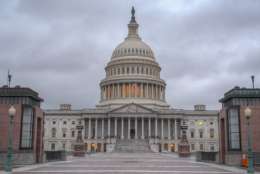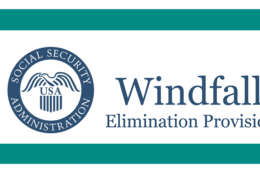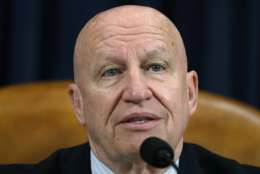Retirement
-
Will Congress get to second base on Social Security reform? There's actually a serious bill in the House to deal with Social Security's looming insolvency.
August 13, 2019 -
The size and purchasing power of your 2020 biweekly paycheck or monthly annuity payment will be decided in a couple of months. The good news about the January 2020 COLA for federal, military and Social Security retirees is that there almost certainly will be one.
August 12, 2019 -
The Windfall Elimination Provision (WEP) has been at the top of the legislative hit list for groups representing federal and public retirees for decades.
August 09, 2019 -
Feds more than most groups need to check on their tax status after retirement. That's why many move.
August 06, 2019 -
Recent Office of Personnel Management retirement numbers show less claims in July, an increase in claims processed and a decrease in processing time.
August 05, 2019 -
The windfall elimination provision reduces the Social Security benefit for someone with less than 30 years of covered service if they qualify for an SSA benefit after as little as five years of covered service.
August 02, 2019 -
Thanks to a 1997 tax law that included the then-new Roth option, many people saving for retirement now have two choices.
August 01, 2019 -
Have you had your professional mid-life crisis yet? If not, this might be a good time to get it over with.
July 31, 2019 -
Despite tough talk from Congress and the White House, the federal employee benefits package has so-far remained untouched.
July 30, 2019 -
In today's Federal Newscast, a bill in the House would replace the Windfall Elimination Provision which currently cuts Social Security benefits for federal retirees who worked in a private sector job and also receive a government pension.
July 29, 2019 -
The new budget deal between Congress and the White House includes a two-year ban on sequestration-related furloughs for federal workers.
July 25, 2019 -
the Government Accountability Office when it looked at prohibited transactions for Individual Retirement Accounts and GAO's Charles Jeszeck had more details on Federal Drive with Tom Temin.
July 24, 2019 -
Benefits expert Tammy Flanagan joins Your Turn today to answer questions about Social Security and retirement applicable to both federal and private sector workers.
July 24, 2019 -
Thousands of feds in some of FEHBP's best and most expensive health plans may be spared from a pending 40% tax on their favorite plans.
July 23, 2019 -
Many retirees will be watching the inflation index from now through September to see what their January cost of living adjustments will look like.
July 18, 2019













